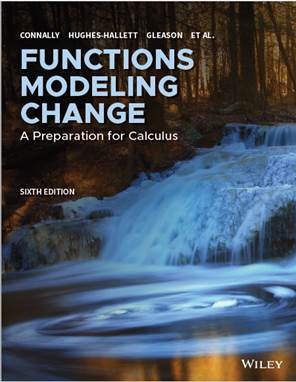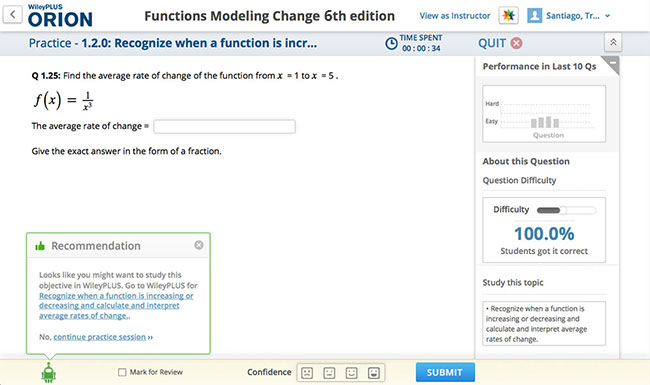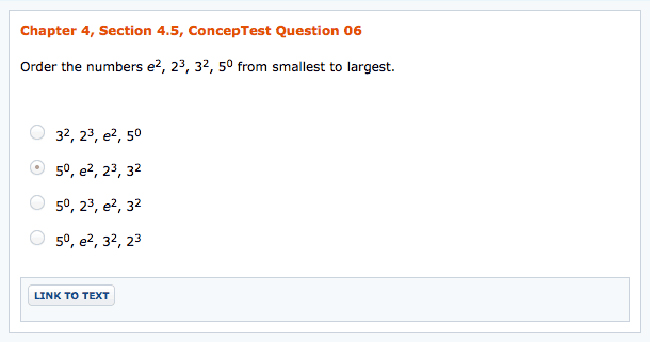
Functions Modeling Change, 6th Edition
By Eric Connally
Functions Modeling Change, 6th Edition prepares students for calculus by stressing conceptual understanding and the connections among mathematical ideas. The author achieves this by focusing on a small number of key topics, thereby emphasizing depth of understanding rather than breadth of coverage. Each function is presented symbolically, numerically, graphically, and verbally (the Rule of Four), and students are encouraged to create mathematical models that relate to the world around them. A large number of real-world applications, examples, and problems support their methodology
Schedule a Demo Sign Up for a Test Drive Adopt WileyPLUSWant to learn more about WileyPLUS? Click Here

Adaptive Practice sets students up for success.
Adaptive Practice is available for every section and learning objective. Utilization of adaptive practice allows students to easily diagnose and focus study on the learning objectives they don’t know. Adaptive practice is also available for prerequisite algebra content.
Video lectures encourage students to become active learners.
Video Lectures help students come to class better prepared. Mini-lecture videos linked to examples in WileyPLUS provide greater detail to the solution of examples in each section of the text. These may assist students in reading the text prior to class or in reviewing material after class.

ConcepTest questions help students learn more effectively.
Modeled on the pioneering work of Harvard physicist Eric Mazur, ConcepTest questions are designed to promote active learning during class, particularly (but not exclusively) in large lectures.
Eric Connally began his teaching career at Harvard University in 1989, shortly after graduating from Cornell University with a B.A. in Physics in 1988. He joined Wellesley College as coordinator of its Quantitative Reasoning (QR ) Program in 1995. At the time, this innovative program encompassed several new undergraduate degree requirements as well as a course in basic math and data analysis. Together with a colleague who joined the program in 1998, he administered all aspects of the QR program and the associated degree requirements. In 2000, Eric joined a software startup company, Elytics, Inc., as a software engineer.
Eric is now the Director of Engineering, working on a new online math project under development by several members of the Mathematics Consortium Working Group. He continues to teach math at the Harvard Extension School and at the Harvard Kennedy School. He was awarded the International Conference on Technology in Collegiate Mathematics (ICTCM) Award for Excellence and Innovation with the Use of Technology in Collegiate Mathematics and the Petra T. Shattuck Excellence in Teaching Award.
1. Linear Functions and Change
2. Functions
3. Quadratic Functions
4. Exponential Functions
5. Logarithmic Functions
6. Transformations of Functions and Their Graphs
7. Trigonometry and Periodic Functions
8. Triangle Trigonometry and Polar Coordinates
9. Trigonometric Identities, Models, and Complex Numbers
10. Compositions, Inverses, and Combinations of Functions
11. Polynomial and Rational Functions
12. Vectors and Matrices
13. Sequences and Series
14. Parametric Equations and Conic Sections

